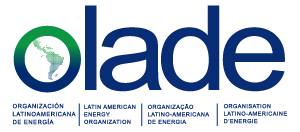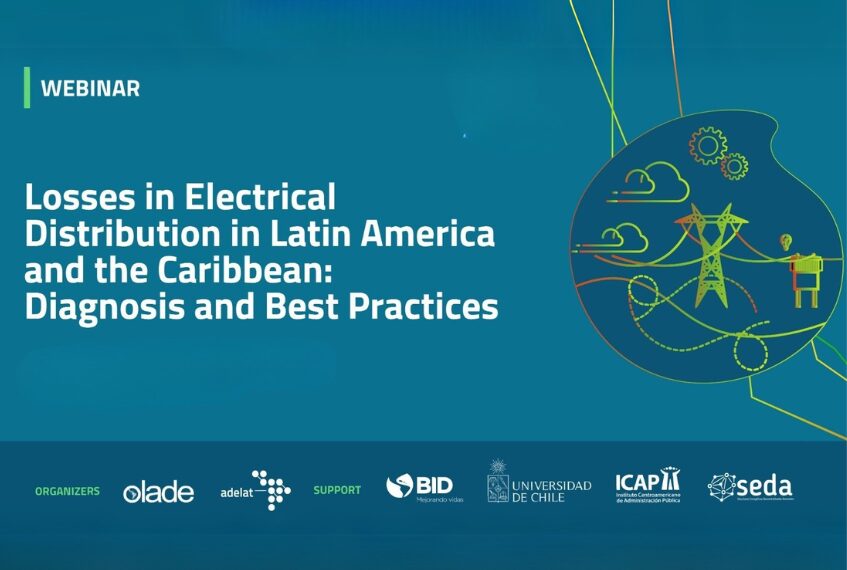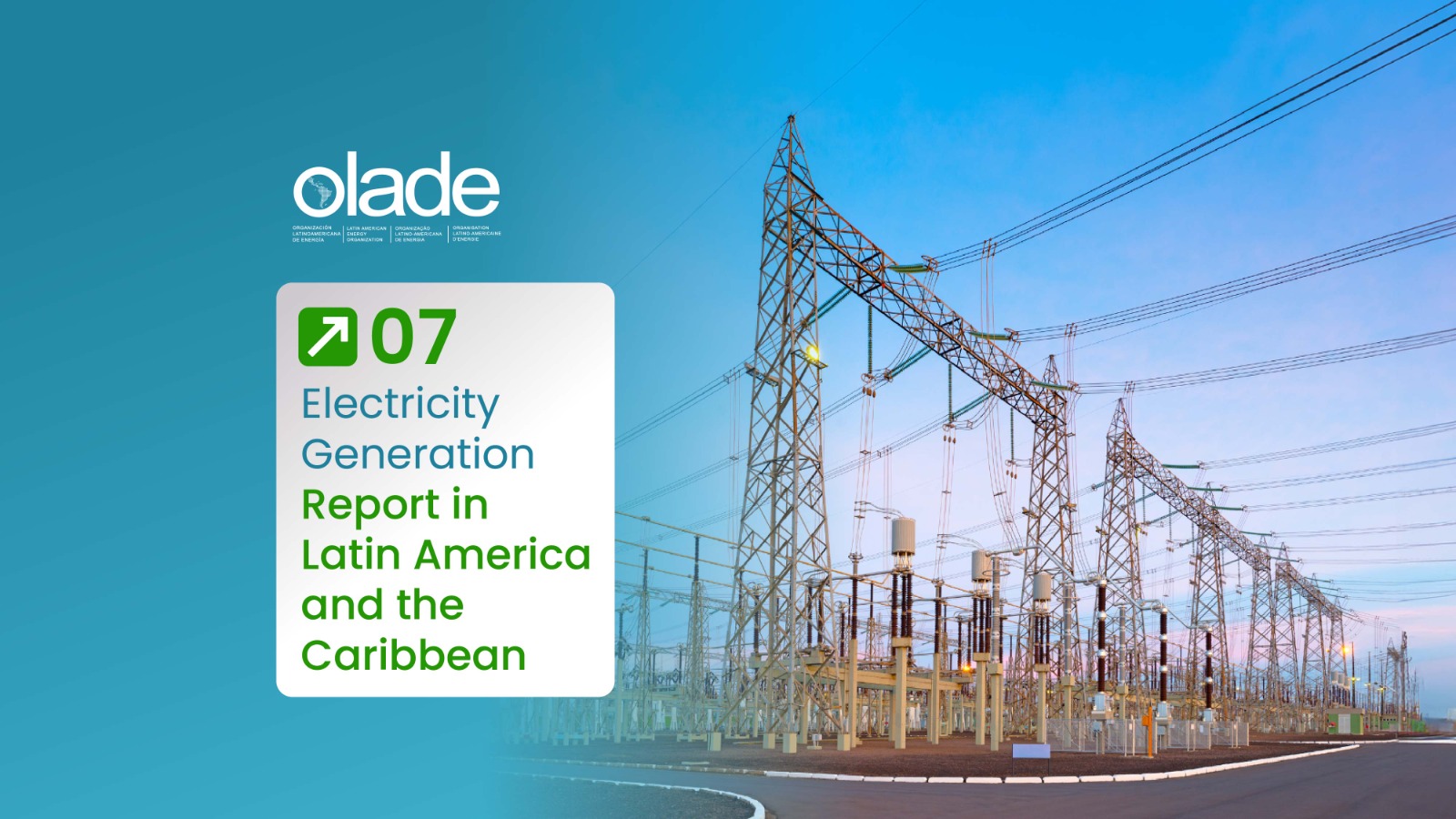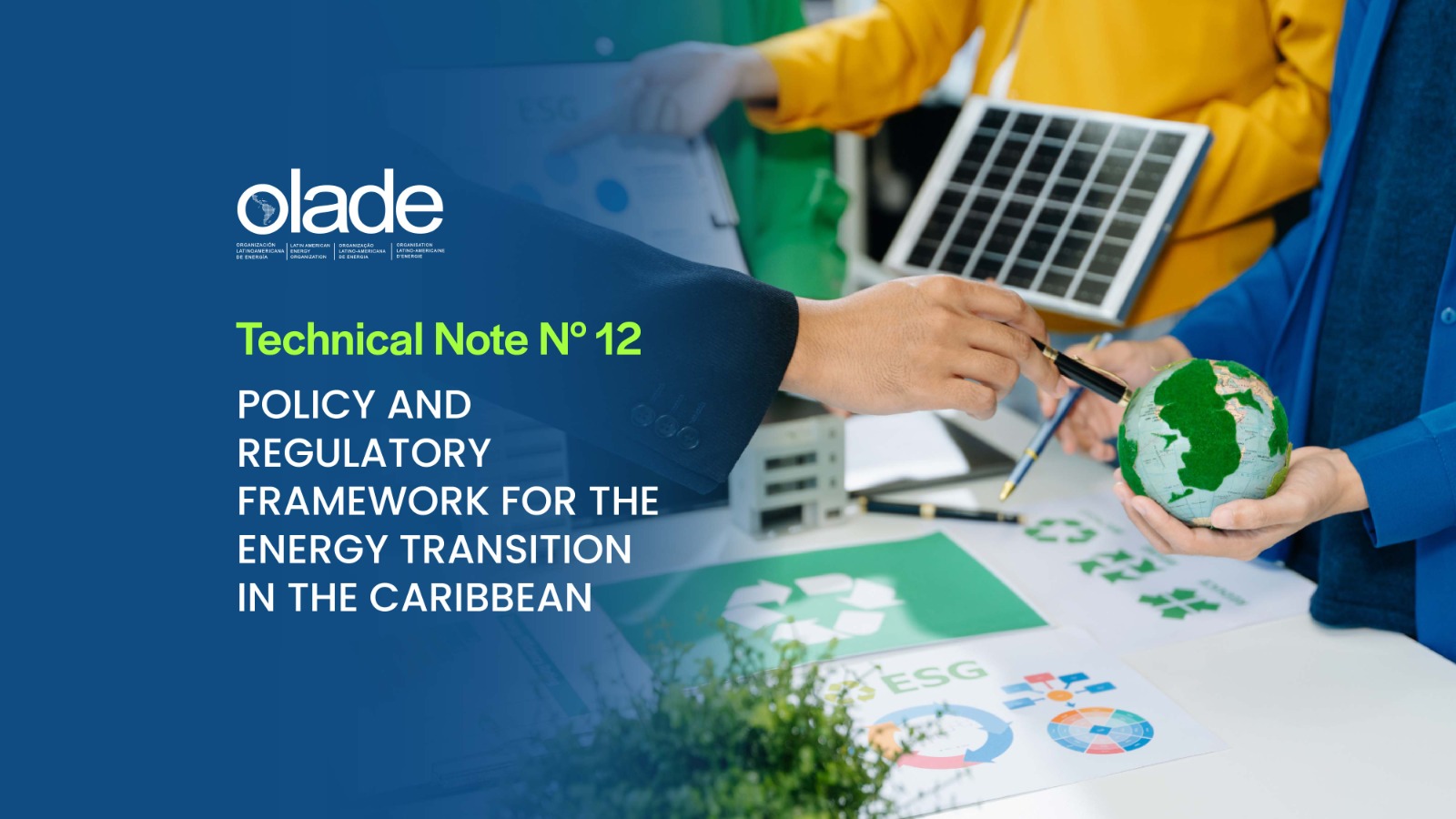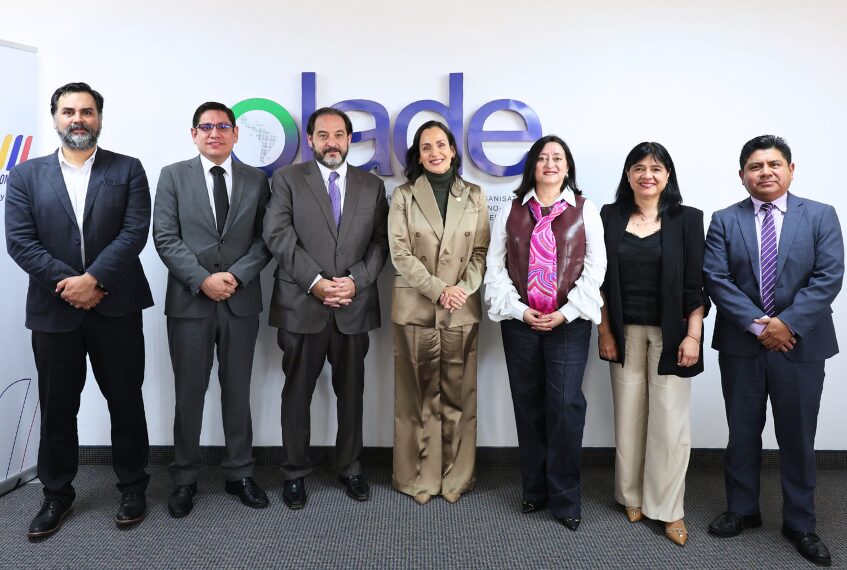The Latin American Association of Electric Power Distributors (ADELAT), the Latin American Energy Organization (OLADE), and the Inter-American Development Bank (IDB) successfully held the webinar “Electricity Distribution Losses in Latin America and the Caribbean: Diagnosis and Best Practices.”
The event served as a valuable platform for analysis and exchange on this issue, bringing together key stakeholders from the electricity sector, regulators, and distribution companies. Discussions focused on the causes, impacts, and mitigation strategies of electricity losses, based on the IDB’s study “The Economics of Electricity Losses in Latin America and the Caribbean.”
The opening remarks were delivered by Fitzgerald Cantero Piali, Director of Studies, Projects, and Information at OLADE, who emphasized the need to approach this challenge holistically: “It is important to understand electricity losses not only from a technical perspective but also from economic and social dimensions.” He added, “This space aims to put the issue on the table, share diagnostics and best practices, and build a menu of solutions.”
OLADE’s Executive Secretary, Andrés Rebolledo, noted that “electricity losses amount to 15% of the annual supply in Latin America and the Caribbean — a figure equivalent to the region’s total current wind and solar energy production.” He also proposed establishing a “regional goal” as a “political driver” to mobilize regulatory and technical reforms.
Representing ADELAT, Executive President Alessandra Amaral highlighted the importance of regional cooperation. “Losses deprive us of essential resources for the energy transition,” she stated, adding: “We need to unite knowledge and best practices to overcome them and secure a sustainable energy future.”
The event continued with a special presentation by IDB experts Rigoberto Ariel Yepez-Garcia and Raúl Jiménez Mori. They explained that reducing electricity losses requires a stable political environment to ensure long-term continuity and support; effective communication about the economic, social, and service-quality benefits; aligned incentives to improve efficiency and cost recovery; and strategic planning with the incorporation of modern technologies.
Later, Rodrigo Palma, professor at the SEDA Center – University of Chile, moderated the panel “Experiences in Reducing and Controlling Electricity Losses,” featuring:
- Giovanni Salazar and Jaime Mercar Chonay from the Inspection, Losses, and Metering Department of EEGSA – EPM Guatemala.
- Manuel Antonio Barboza Chacón, Loss Management Coordinator at ICE Electricidad (Costa Rica).
- Germán Noez, Market Discipline Manager at Edenor (Argentina).
- Aldo Pessanha, Chairman of ADELAT and Director of Generation and Strategy at Enel Brazil.
- Ariel Ramírez from the Central American Institute of Public Administration.
The EEGSA – EPM Guatemala team presented their “Energizados” project, which uses artificial intelligence to predict electricity fraud. Key benefits included: comprehensive customer analysis, optimized inspection processes, automated fraud evaluation, automatic reporting, streamlined decision-making, equipment fault detection, and model scalability.
Barboza Chacón reviewed ICE Costa Rica’s loss reduction efforts: “In 2024, our company had 8.05% losses, representing around 64 million dollars.” He noted that “many actors are involved along the value chain,” and emphasized ongoing work through technology upgrades and migration to more efficient meters.
Noez highlighted Edenor’s initiative launched in 2019 to install self-managed meters, now used by approximately 246,000 customers. He stressed that this effort led to a “progressive reduction in energy losses” and helped “build loyalty among previously inactive or informal customers.”
Finally, Aldo Pessanha outlined Enel Brazil’s strategies to combat electricity theft in Rio de Janeiro. Actions implemented in 2024 included field inspections, network cleanup projects in high-recurrence areas, regularization of illegal connections, the BT Zero project, customer shielding with smart metering, and integrated management of critical areas, coordinated with the police and supported by initiatives to promote responsible energy consumption.
Electricity losses remain one of the main challenges for the region, impacting efficiency, sustainability, and service quality. Through inter-institutional collaboration, Latin America and the Caribbean can move toward a more resilient power system committed to a sustainable energy future.
